Photographs: Reuters
Pakistan Prime Minister Yusuf Raza Gilani on Friday said he would not seek a vote of confidence from parliament against the backdrop of an escalating row with the judiciary and military as his government did not want any clash between state institutions.
"I have no need for a vote of confidence," Gilani told a special session of the National Assembly or lower house of parliament that was convened by the ruling coalition after the Supreme Court warned action could be taken against the President and premier for not reopening high-profile graft cases.
In a speech that was very critical of the opposition, Gilani said his government did not need the opposition's support to tackle the crisis caused by the apex court's order to reopen graft cases that were scrapped under the National Reconciliation Ordinance, a graft amnesty issued by the previous military regime.
The NRO was scrapped by the apex court in 2009.
Click on NEXT for more...
'Democracy or dictatorship? YOU decide'
Image: Pakistan President Asif Ali ZardariPhotographs: Reuters
"The Leader of Opposition may think we have come here to be saved from the NRO by the opposition. We have not come here for the NRO, we have not come to get an endorsement from the House for NRO," Gilani said.
"Nor do we need support from you to be saved from the military and we have not come for a clash of institutions. We have also not come to be shaheeds (martyrs) as the opposition believes," he said.
The House could debate any demand for a vote of no-confidence or constitutional amendments to cut short the tenure of parliament or the prime minister, Gilani said.
He cautioned the opposition not to approach "other institutions" to decide matters like the term of the government.
Gilani's remarks were an apparent reference to the petition filed by main opposition Pakistan Muslim League – Nawaz in the apex court seeking a probe into the alleged memo that had sought United States' help to stave off a possible military coup in Pakistan last year.
Click on NEXT for more...
'Democracy or dictatorship? YOU decide'
Image: Former Pakistan president Pervez MusharrafPhotographs: Reuters
Gilani has insisted that the memo should be investigated by a parliamentary panel, and not the apex court.
A defiant Gilani blamed former military ruler Pervez Musharraf for the NRO, saying the "presumed beneficiaries" of the graft amnesty were being punished while the architect of the NRO was making plans to return to Pakistan from self-exile and asking the people to welcome him back.
The premier acknowledged that his government had made "mistakes" but said democracy should not be punished for this.
He said it would be written in history that the army and Inter Services Intelligence chiefs had been held accountable in parliament for the first time during his tenure.
"Parliament should decide whether there should be democracy or dictatorship in this country. If we make mistakes, democracy should not be punished," he said.
Click on NEXT for more...
'Democracy or dictatorship? YOU decide'
Image: Members of a police band gather outside the Supreme CourtPhotographs: Reuters
Gilani repeatedly said he was not against any institution, including the judiciary and the military, and recalled his role in restoring the judges, including Supreme Court Chief Justice Iftikhar Chaudhry, who were sacked by Musharraf.
The premier warned the opposition PML-N that it would not gain from the ouster of his government. In the past too, the opposition had not gained when the Pakistan People's Party's governments were removed through unconstitutional means, he pointed out.
Gilani said the ruling coalition would move a resolution that is aimed at strengthening democracy and parliament.
"The resolution is not against any institution, including the judiciary and the army," he said.
The opposition was free to make any changes it wanted in this resolution, he added.
Click on NEXT for more...
'Democracy or dictatorship? YOU decide'
Image: Pakistan's national flagPhotographs: Reuters
Later, the resolution was introduced in the House by Awami National Party chief Asfandyar Wali Khan, a key leader of the ruling coalition.
With the session being adjourned for the Friday prayers, the National Assembly will vote on the resolution on Monday, officials said.
The resolution said the trichotomy of powers should be fully respected and all institutions should operate strictly within the constitution. It called on the House to endorse the government's efforts to strengthen democracy and democratic institutions.
The resolution further said the strengthening of democratic institutions is essential for democracy and that parliament is the repository of people's trust.
Sovereignty lies with the people of Pakistan, it added.
Analysts said the resolution is aimed at strengthening the government's hands in its standoff with the judiciary over the reopening of high-profile graft cases and with the military over the Memogate scandal.
Click on NEXT for more...

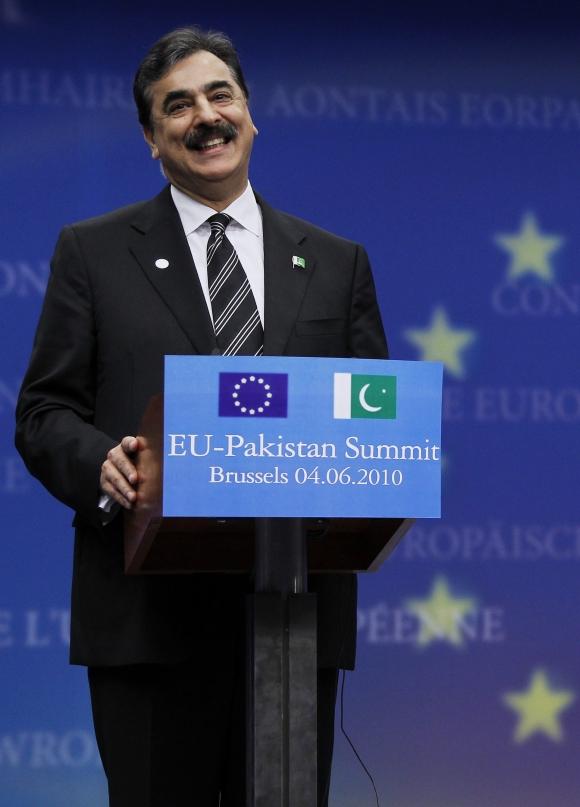
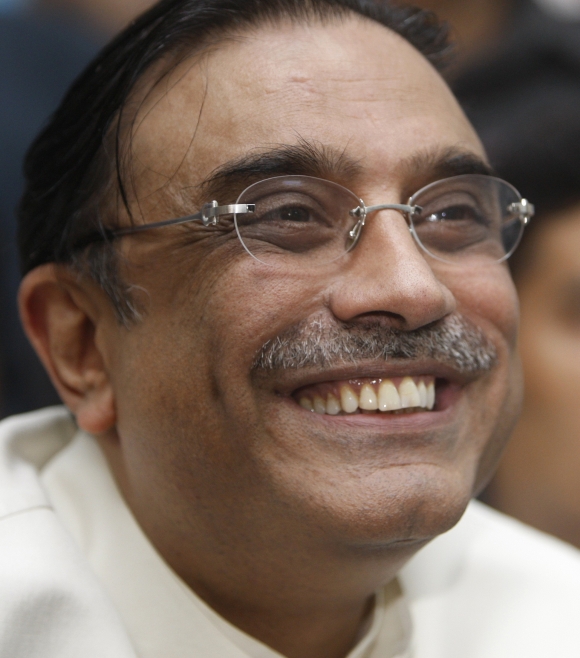
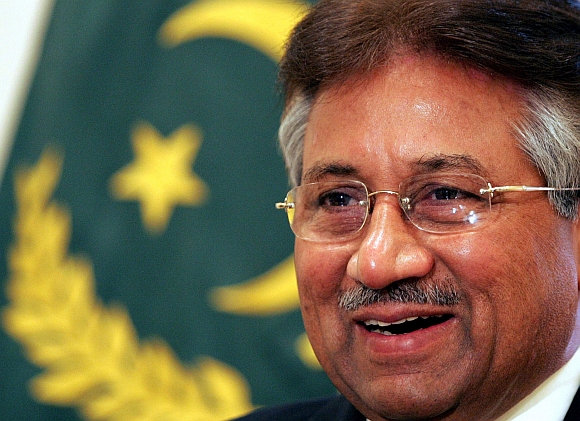
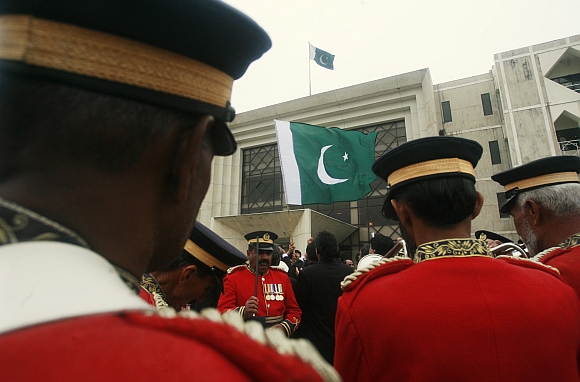
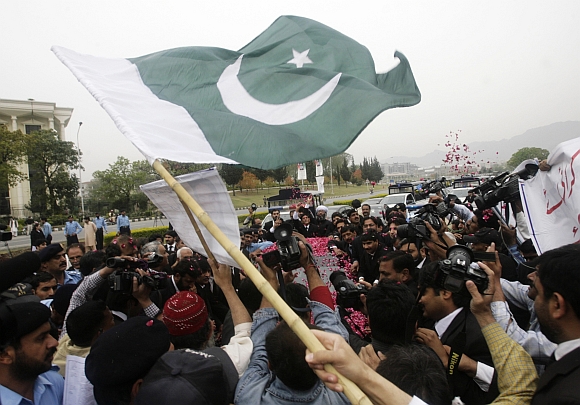
article